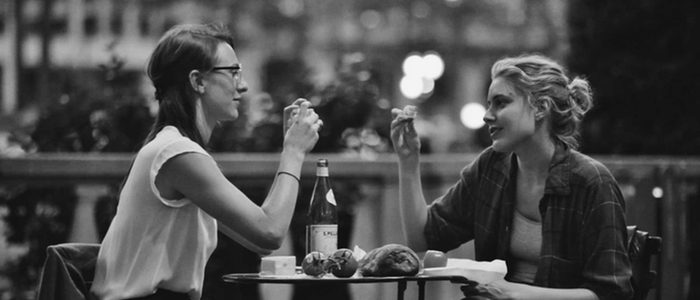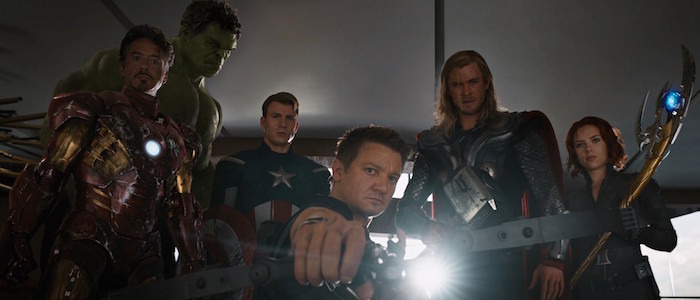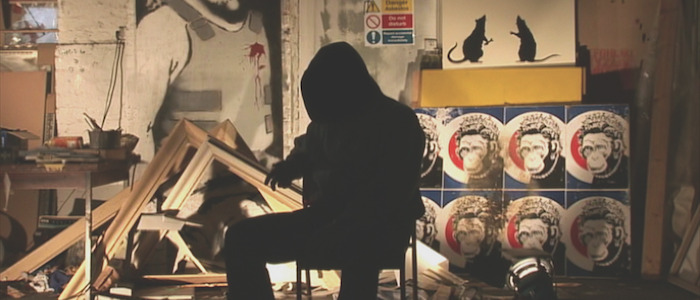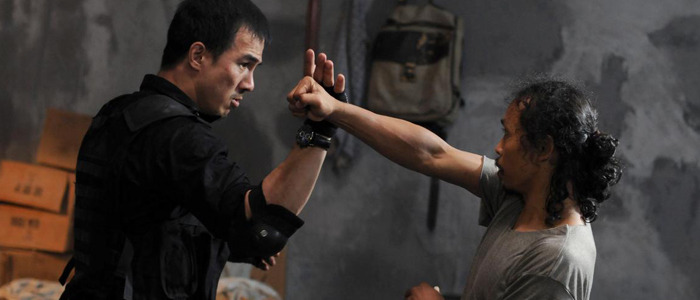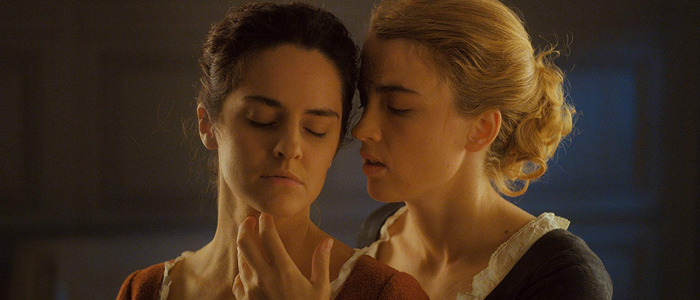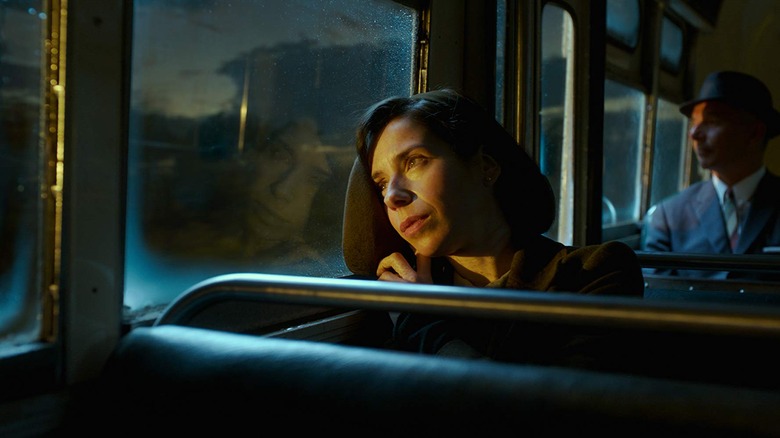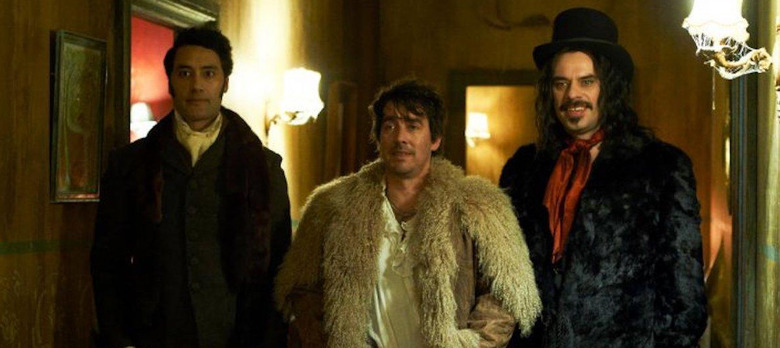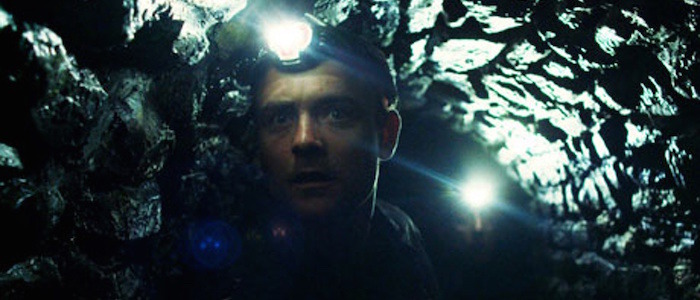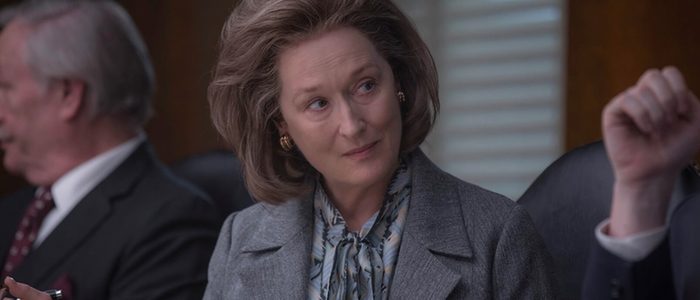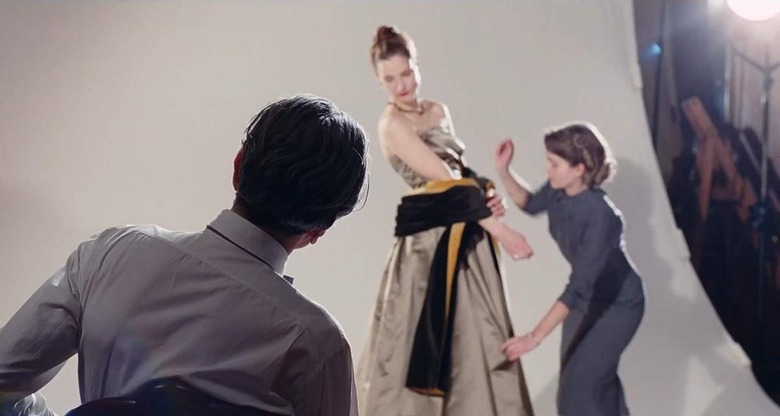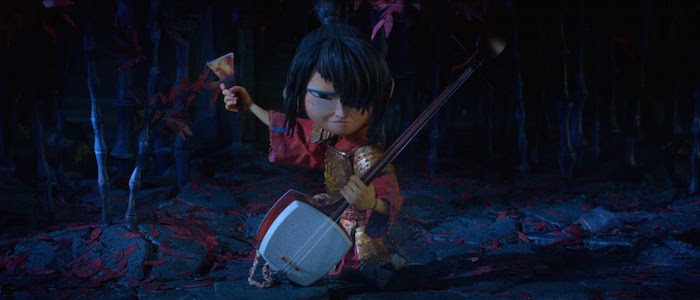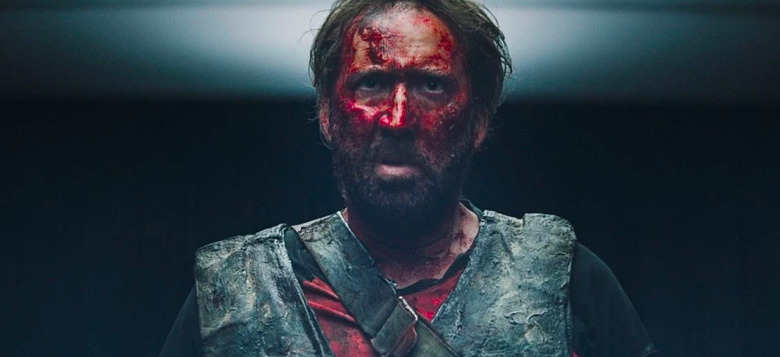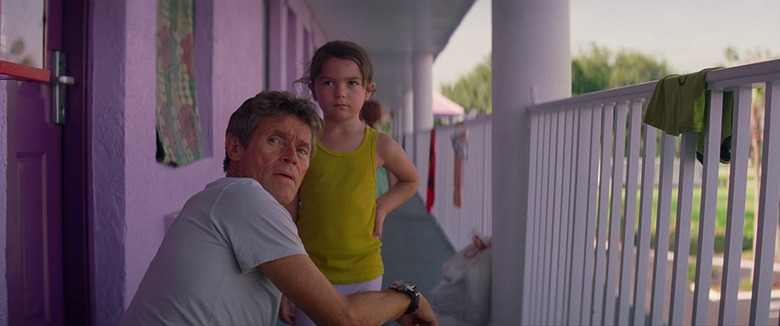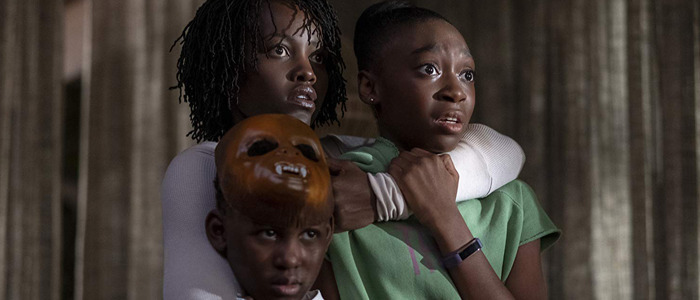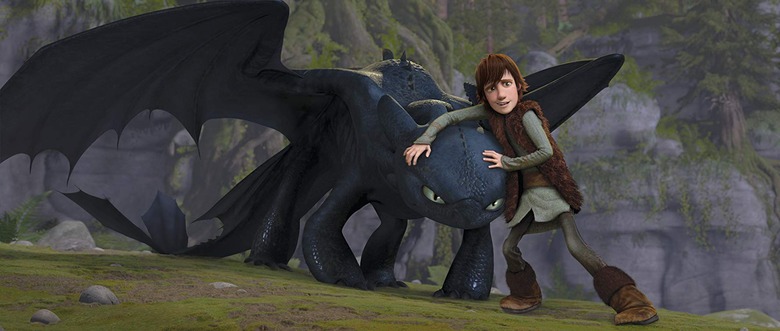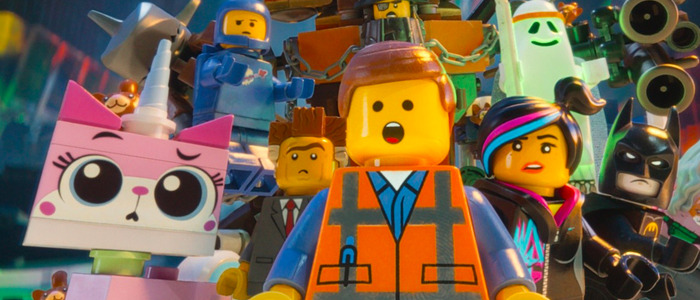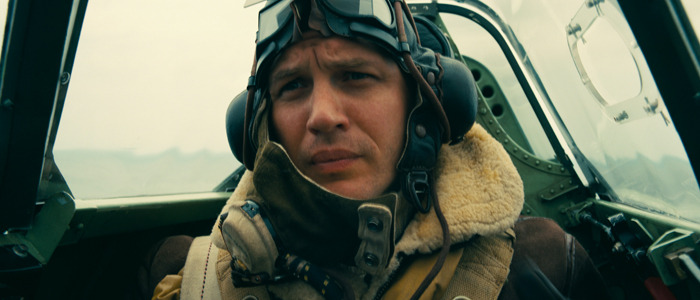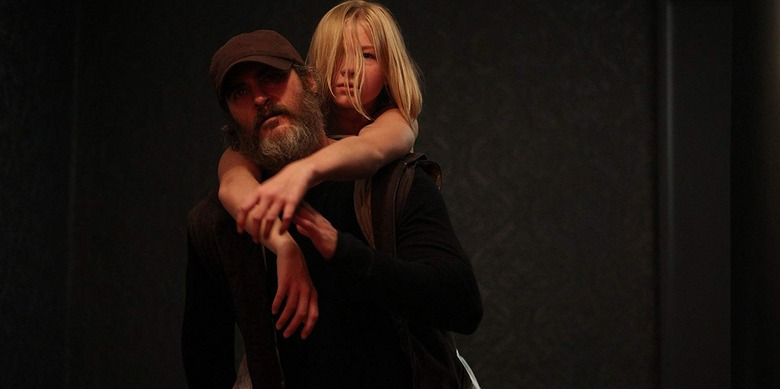The 100 Best Movies Of The Decade [Part Two]
(Welcome to /Film's countdown of The 100 Best Movies of the Decade, examining the absolute best movies that were released between 2010 and 2019. This is part two of a five-part series and part of our Best of the Decade series.)
Last week, the /Film team sat down for an extended two-part podcast to narrow down the 100 best films of the past decade. When the dust settled, we were left with a family of movies that could not be more different: action films and intimate dramas and horror flicks and animated movies and everything in-between. What connected them was simple – they represented the collective taste of the entire staff and everything we love about the past ten years of cinema.
What follows is 80-61 of that list, a collection of films we love from the bottom of our hearts.
80. Frances Ha
Noah Baumbach and Greta Gerwig's Frances Ha is a black-and-white portrait of a young woman who doesn't quite feel like an adult yet. Gerwig's Frances Halladay is a struggling 27-year-old who has more or less tied her entire identity to her best friend and roommate Sophie (Mickey Sumner). But when Sophie announces she's moving out, Frances' life goes into a tailspin, and she struggles to figure out just where the hell she belongs. Part indie drama, part screwball comedy, Frances Ha is both uproariously funny and frequently melancholy, with Gerwig commanding the screen at every turn, even when her character is at her lowest. [Chris Evangelista]
79. Eighth Grade
Bo Burnham's self-assured directorial debut follows breakout star Elsie Fisher as an introverted 13-year old girl during the last week of middle school, preparing to make her way to high school. What makes this coming of age film remarkable is the honest and relatable portrayal of teenage life, Fisher's vulnerable performance, and Burnham's smart, sweet and poignant script. [Peter Sciretta]
78. The Avengers
The grand experiment that was the Marvel Cinematic Universe came to its first epic franchise crossover with The Avengers in 2012, and it worked so well that it changed the way Hollywood studios approached franchises and sequels, for better and worse. The movie brought four superhero film franchises together for a superhero team up that was packed with action and payoffs that had been set up in the previous origin stories of Iron Man, Hulk, Captain America and Thor. But perhaps even more impressive is that The Avengers set the stage for the even more epic crossover to come by giving audiences a credits scene a tease that wouldn't fully payoff until Avengers: Endgame in 2019, seven years later. It's the cinematic equivalent of Babe Ruth calling his shot on top of what was already an incredible achievement in blockbuster filmmaking. [Ethan Anderton]
77. Exit Through the Gift Shop
Exit Through The Gift Shop is one of my favorite documentaries of all time. A surprise film at the 2010 Sundance film festival, Exit is a provocative and subversive look at the creation and value of art and a marathon race through the world of street art. As with Catfish, another "documentary" at that year's fest, Exit left many people questioning the authenticity of the characters and story. The mystery behind the creation of the documentary and the filmmaker, anonymous street artist Banksy, just adds to the spectacle. [Peter Sciretta]
76. The Raid: Redemption
If Die Hard got hopped up on speed, it might look a little bit like The Raid: Redemption, Gareth Evans' masterful martial arts film about a team of elite Indonesian soldiers entering a gang-controlled high-rise to bust an evil drug lord. The set-up is so simple that it gives Evans room to innovate in other areas, blending exciting and "how the hell did he do that?" camerawork with bone-crunching, visceral martial arts choreography. The Raid: Redemption is in the pantheon of martial arts action films for good reason: it's one of the most influential movies on this entire list. [Ben Pearson]
75. Portrait of a Lady on Fire
One of the most profoundly moving romances ever committed to film (yes, really), Céline Sciamma's Portrait of a Lady on Fire is a symphony of furtive glances, words unspoken, and repressed feeling...until the dam finally breaks and the passion comes bursting forth in beautiful, head-spinning fashion. There's not a wasted second in this movie: every shot, every cut, every look creates a heart-swelling tapestry, and as the central romance's strength is tested, it builds to one of the most genuinely emotional endings I've ever seen. This one's an all-timer, folks – seek it out as soon as humanly possible. [Ben Pearson]
74. The Shape of Water
At once a send-up of B-movie creature features, classic Hollywood musicals, an allegory of oppression, a deconstruction of the American dream, Guillermo del Toro's Oscar-winning The Shape of Water is as fluid a film as the element in its title. Del Toro's take on Beauty and the Beast has been kind of superseded by jokes about the sexy fish man (and as played by Doug Jones, he's very sexy), but The Shape of Water is a lovely fairy tale romance unlike any other Best Picture winners we've seen before. The truly bizarre combination of fish sex and Cold War allegories shouldn't work, but under del Toro's romantic direction and anchored by Sally Hawkins' vulnerable, multifaceted performance as the mute cleaning woman Eliza Esposito, The Shape of Water plays like a dream. [Hoai-Tran Bui]
73. What We Do in the Shadows
What We Do in the Shadows arrived in 2014. It was a time when vampires had overstayed their welcome, thanks to Twilight, True Blood and the blood-sucking craze that followed. And mockumentaries seemed to have reached their peak with The Office and Parks and Recreation. But writers and directors Taika Waititi and Jemaine Clement somehow delivered a movie that stood out among the pack by being a gut-busting comedy about a trio of misfit vampire roommates. This could have easily been a feature length sitcom, but it's a clever, hilarious approach to the vampire mythos that bridges gothic style with contemporary comedy. [Ethan Anderton]
72. Kill List
Ben Wheatley's Kill List is one of the most sinister movies ever made, a deranged slow-motion plummet into a nightmare that grows more terrifying and incomprehensible with every passing scene. What begins as a low-key hitman drama eventually becomes something else entirely...and by the time you realize what's going on, it's too late to turn back. It's also too late for the characters at the center of the story, who didn't realize they were trapped in the decade's most unsettling horror movie until every escape route was cut off. Kill List is the kind of movie that lodges itself deep in your brain and never leaves. [Jacob Hall]
71. The Post
Steven Spielberg still has it, and don't let anyone tell you otherwise. Spielberg's star-studded The Post is a love letter to journalists and journalism, and a battle cry that underscores just how vital a free press is. In telling the story of the Pentagon Papers, The Post takes us on a whirlwind ride as the team at the Washington Post struggles to do the right thing, consequences be damned. The story is framed around the life of Katharine Graham (Meryl Streep), the publisher of the Post who often finds herself as the lone woman at a table full of men. It's almost a joke at this point to underscore how great an actress Meryl Streep is, but Spielberg actually directs her towards one of her best performances in years as Graham, with Streep playing up Graham's uncertainty that slowly blossoms into strength. [Chris Evangelista]
70. Phantom Thread
Paul Thomas Anderson's lavishly shot portrait of a torrid relationship between a male genius and his muse shouldn't be as absurdly funny as it is, but Phantom Thread is one for bucking expectations. Daniel Day-Lewis and Vicky Krieps are tremendous as the dressmaker Reynolds Woodcock and his new muse, Alma, who challenges and upsets him in ways he does not expect. It's a wry interpretation of the gothic romance (romance in the loosest sense of the word) as it slowly dawns on you that this is the perfect depiction of a toxic romance, and that these horrible people deserve each other. [Hoai-Tran Bui]
69. Kubo and the Two Strings
One of the most beautifully staged movies on this list, Kubo and the Two Strings is an epic but intimate story of a boy trying to find his place in the world. It's a visual marvel: the stop-motion animation is the most breathtaking, gorgeous work that Laika (the studio behind films like Coraline, ParaNorman, and The Boxtrolls) has ever produced. But its personal stakes are the engine that drives the film, and it would all be an empty spectacle without the heart at its center. Stirring and stunning in equal measure, Kubo is a lovely testament to the power of storytelling. [Ben Pearson]
68. Mandy
Mandy is probably the most purely visceral film of the decade, a dream-like experience that proves that style can be substance. Director Panos Cosmatos delivers the kitchen sink and more: evil cults, demon bikers, extended drug trips, character actors popping up to lend their gravitas, and Nicolas Cage going Full Nicolas Cage. But all of that style, all of that wild and wacky and terrifying imagery, powers a revenge story that's really about grief and what happens to us when the person we love the most is torn away. It's hard to shake Mandy once you've seen it – no film this decade better represents the feeling of living in a bad dream. [Jacob Hall]
67. The Florida Project
Sean Baker's film is a profoundly human, emotionally devastating depiction of life on the periphery. A topic that in other hands may come off as mawkish or exploitative, The Florida Project is instead a whimsical slice-of-life film told through the eyes of a child, whose naivety lends the film an unpretentious warmth. Willem Dafoe stars in a career-best role as a compassionate motel manager with a cast largely plucked from the street including astounding newcomer Brooklynn Prince. There's no real plot to The Florida Project: the film is comprised of a series of a everyday vignettes set in the rundown motels that surround Florida's Disney World. But because of its childish whimsy and playful, escapist heart, The Florida Project becomes a moving depiction of how joy can be found in even the smallest of places. [Hoai-Tran Bui]
66. Us
In Jordan Peele's Us, you can feel the director inching away from the mainstream and asking audiences to come along for the ride. What initially appears to be a horror film about doppelgängers closing in on a single family reveals itself to be something much larger, with Peele soaking the movie in metaphor and inviting us to draw our own conclusions about what each little detail represents. It's the type of unconventional, exciting cinema we always say we want, and I'm thrilled Peele is here to give it to us. Lupita Nyong'o's unforgettable performance still haunts me months later. [Ben Pearson]
65. How to Train Your Dragon
How to Train Your Dragon was a turning point for DreamWorks: up until then, a studio mostly known for its Shrek sequels and Pixar knock-offs. But with Dean DeBlois' adaptation of the Cressida Cowell children's books, DreamWorks turned a new leaf and showed themselves capable of sincere, breathtaking animation. The studio hired famed (and now Oscar-winning) cinematographer Roger Deakins to consult on How to Train Your Dragon, resulting in one of the most cinematic CG-animated films to date with some of the most beautiful flying sequences ever put to the screen. It's a classic boy-and-his-creature story that has carried us through stories reaching back through the centuries, but in How to Train Your Dragon, that story — of the unbreakable bond between the outsider Viking Hiccup and his disabled dragon friend Toothless — feels freshly heartwarming. [Hoai-Tran Bui]
64. The LEGO Movie
The LEGO Movie could easily have been a soulless, formulaic, corporate cash grab. But in the hands of writer/directors Phil Lord and Chris Miller, it ended up being a repudiation of those very concepts and an ode to creativity in its many forms. If a scale existed which somehow measured every movie's Questionable Concept vs. End Result, The LEGO Movie would dismantle the scale, use its pieces to construct something goofy like an upside-down helicopter, and give everyone a high five as it flew away. Everything was not awesome this decade, but against all odds, this movie actually was. [Ben Pearson]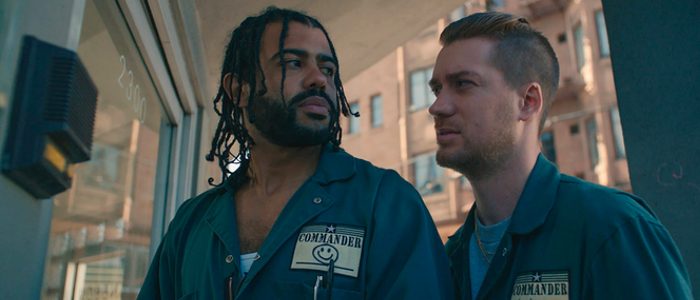
63. Blindspotting
Carlos López Estrada's Blindspotting went virtually unnoticed when it opened in 2018, and what a damn shame that is, because it's a powerhouse. Rafael Casal and Daveed Diggs (who also wrote the film) star as lifelong friends Collin and Miles. Collin is nearing the end of his probation, and all he has to do is stay out of trouble for three days. That's easier said than done, because Miles is constantly drawing Collin into potentially dangerous situations. Things get further complicated when Collin witnesses a cop gun down an unarmed black man, triggering a wave of PTSD in the process. Bursting with energy and wit, Blindspotting deserves to find a wider audience that can appreciate it for years to come. [Chris Evangelista]
62. Dunkirk
Christopher Nolan's unexpectedly emotional and experimental World War II epic is a unique beast – a war film about bravery in retreat. This is no history lesson: Dunkirk is a story about desperation, about time being the enemy, and how brave men, soldiers and civilians alike, came together to save thousands of soldiers (and in the wider arc of history, western civilization). That sounds like a recipe for something familiar, but presentation is everything. When the film's timeline comes together, when the three time periods simultaneously climax and you realize how the film's initially puzzling structure fits together, it's profoundly emotional. Nolan has been accused of being an icy filmmaker and that's often true. But here, he generates emotion through sheer cinematic technique, letting the cuts in the film's action generate something primal. Something special. Something we've never seen before. [Jacob Hall]
61. You Were Never Really Here
Tremendously lean and notably absent of thrills, You Were Never Really Here is a searing takedown of the lone-wolf mythos — presenting Joaquin Phoenix's hired gun, Joe, as a worn-down, hulking mass who has the outlook of a stunted child. Though he goes through the motions that you expect of a Taxi Driver-esque savior — rescuing girls from child prostitution rings, mercilessly killing men who exploit them — there's an overbearing sadness with each trigger that Joe pulls and each pool of blood he sidesteps. You Were Never Really Here is devoid of triumphs and catharsis, operating in the aftermath of violence. Subversive and quietly feminist, You Were Never Really Here is a brilliant takedown of the illusion of masculine vengeance. [Hoai-Tran Bui]

